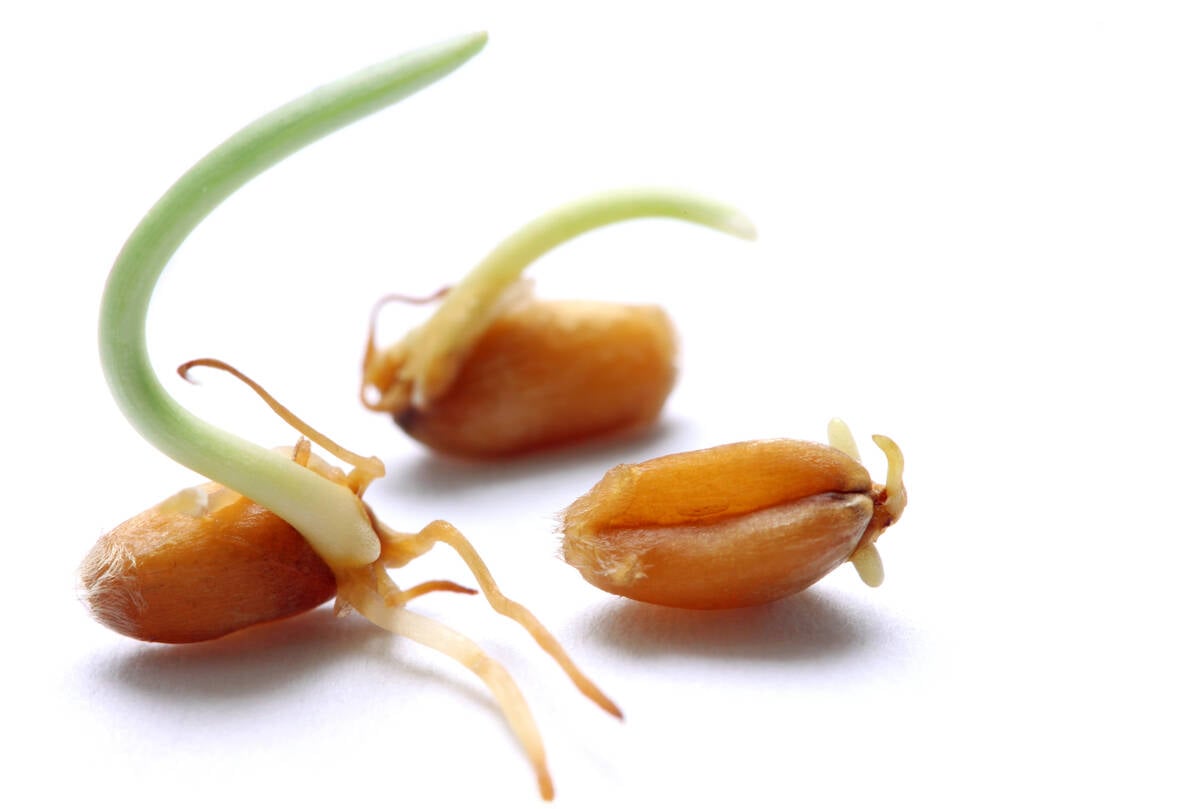Plans for a flax processing plant in Western Canada are coming together, with hope among its proponents that full production could start within two years.
The plant would convert flax straw into a fibre referred to as Fibex. The fibre would then be blended with plastic to create a strong, lightweight composite material.
Alpha Fibre Ltd. has finished final testing of the technology it will use to produce Fibex. Companies that might one day use Fibex in composite materials are now testing it in the production of things such as plastic fencing, decking, automotive parts and pallets.
Read Also

Manitoba farmers fight sprouted wheat after rain
Rain in mid-September has led to wheat sprouting problems in some Manitoba farm fields.
“The tests to date are looking excellent,” said Don Penny, a partner in the accounting firm of Meyers Norris Penny, headquartered in Brandon, Man. Penny is among those championing efforts to start a flax processing plant in the region.
Alpha Fibre wants to have the testing done by the end of September, which it hopes will show the merits of Fibex in a composite material. In the meantime, the company will review options for the size and location of the plant.
Those details could be revealed as early as this fall. The plant will be located in either Saskatchewan or Manitoba, said Alpha Fibre president Deborah Kern.
A share offering might also be held this fall to raise capital to build the processing plant.
Kern said they want to ensure there is a secure market for Fibex before construction of the plant begins.
“We want the production of this plant sold prior to one brick being put in place. That is the plan.”
Kern estimated the plant will use 85,000 tonnes of straw per year. With about 2.4 million acres of flax grown annually in Manitoba, Saskatchewan and North Dakota, she believes there could one day be four or five flax processing plants in the region.
After refining the straw into Fibex, Alpha Fibre would sell it to other companies wanting to blend it into plastic-based products. Markets in Canada and the United States are being sought, Kern said.
About 600 million pallets are manufactured and sold in the U.S. each year, said Kern. Only about a third of those are plastic.
“Forty percent of the hardwood lumber in the United States goes into pallets.” she said.
“There is an opportunity to create a lightweight, strong pallet that performs as well as wood.”
A new generation co-operative formed among farmers is one option being considered for the collection and delivery of flax straw to the plant. It’s not known how much might be paid to farmers for the straw.
Ecusta Fibres Ltd. and Schweitzer-Mauduit Canada Inc. both buy flax straw from Manitoba growers. They extract raw fibre from the straw before baling it and exporting it into the U.S. for further processing.
“Obviously we’re going to have to be competitive in our purchase price of the straw,” said Penny. “If they’re paying a nickel, we can’t pay a penny.”
John Corbey organized a meeting earlier this year to discuss the proposed venture with flax growers around Virden, Man. The meeting attracted farmers and other community members.
“They were pretty keen on it,” said Corbey, a farm management specialist with Manitoba Agriculture. He estimates that about a million acres of flax are grown annually within a 100 kilometre radius of Virden.














